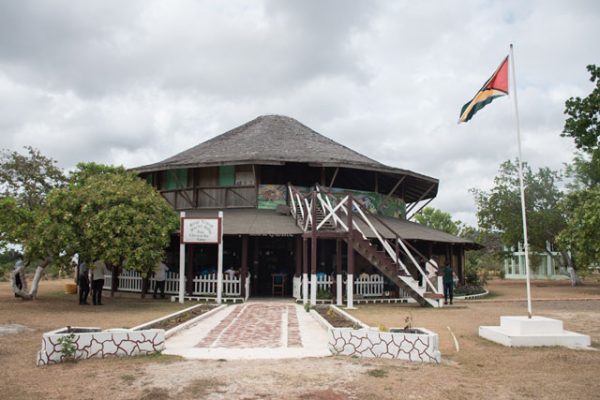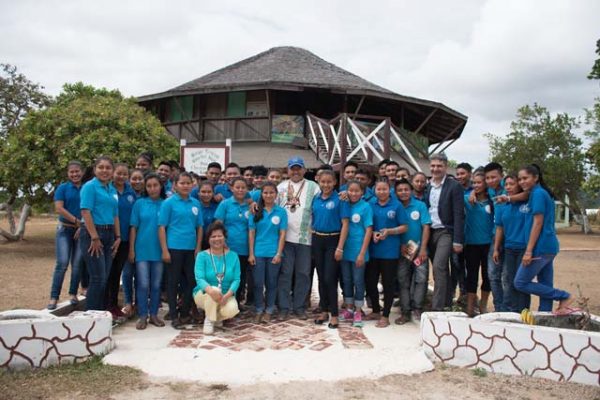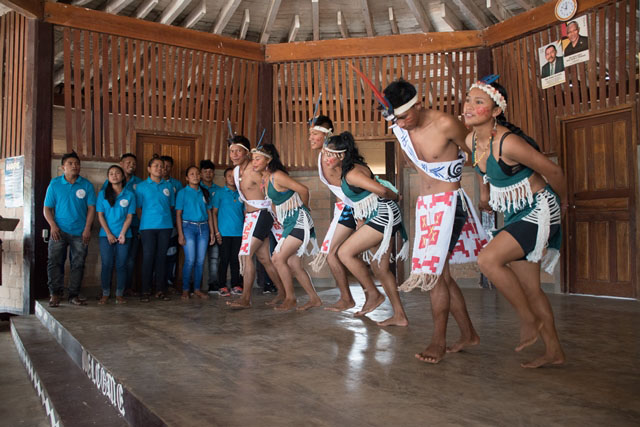Canadian High Commissioner to Guyana, Lilian Chatterjee, is pleased with the level of training and quality of the students at the Bina Hill Institute, Annai, Region Nine.
According to a Department of Public Information (DPI) press release, Chatterjee was part of a delegation which recently visited the North Rupununi Skills Training Institute for Indigenous youths, as part of an inspection of Canadian-funded projects and to listen to the needs of the hinterland communities.
“We are to listen to you and to hear what your needs are and to respond to your needs. We have had a long history with you and you have not let us down in the past and we have full confidence that you will not let us down in the future,” Chatterjee was quoted as telling the students. She also encouraged them to take full advantage of the training opportunities offered at the institution, the DPI added.

Minister of Indigenous Peoples’ Affairs, Sydney Allicock, who led the delegation, noted that partnerships are a key component in the developmental process for Indigenous communities.
“We want you to be self-sufficient, giving back to other communities… When you [the students] move on, we want you to be skilled and be able to develop your community,” Allicock encouraged the students.
The DPI stated that Allicock disclosed that the Canadian Government is a long-standing partner of the institute which was established in 2001, and recently contributed to the establishment of a chicken rearing project at the institution.
Regional Chairman, Brian Allicock, also stressed the importance of partnerships in the development of the region. “I’m happy that the Canadian representatives are here to see what has been done with their funding. We can’t let opportunities like these go by with[out] voicing our concerns and needs.”
The delegation was also treated to a cultural presentation in the form of traditional

songs and dances from the students of Bina Hill Institute and the Surama Cultural Group.
The Bina Hill Institute is the only residential tertiary institution located in the hinterland. It provides access to skills training programmes for Indigenous youths who reside in Regions One, Seven, Eight and Nine. The students are trained in natural resource management, forestry, wildlife, agriculture, tourism, business studies, life and traditional skills, computer skills, and Mathematics and English Language.
The delegation took the opportunity to visit the Wowetta Women’s Agro-processors Farine Processing Factory and the Hinterland Green Enterprise Centre, which is under construction.










